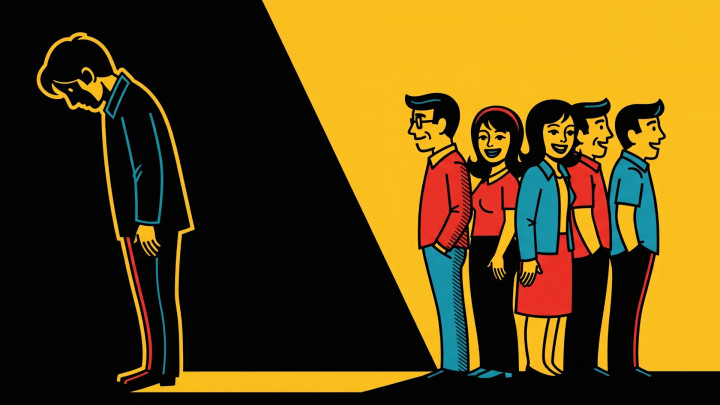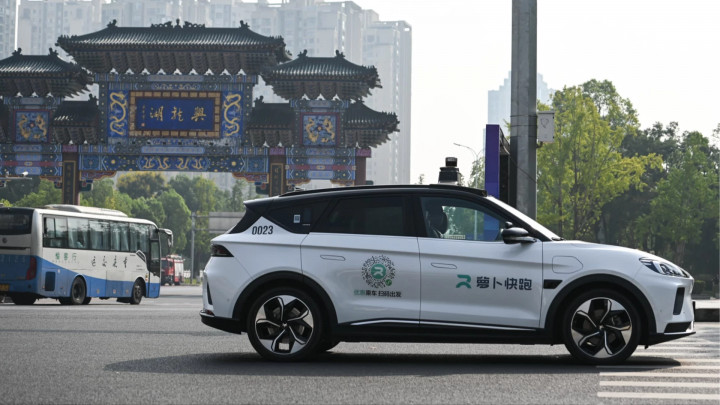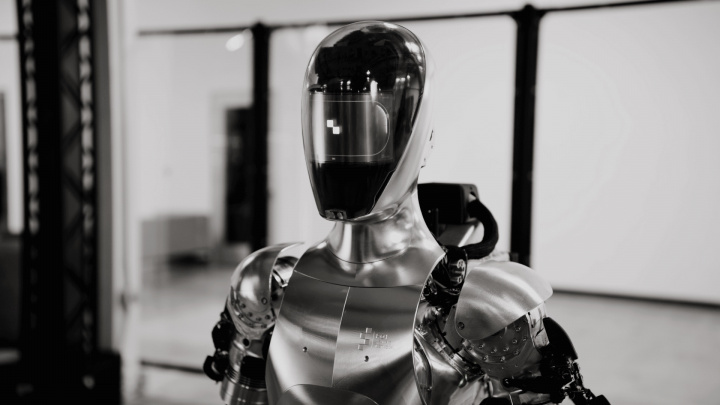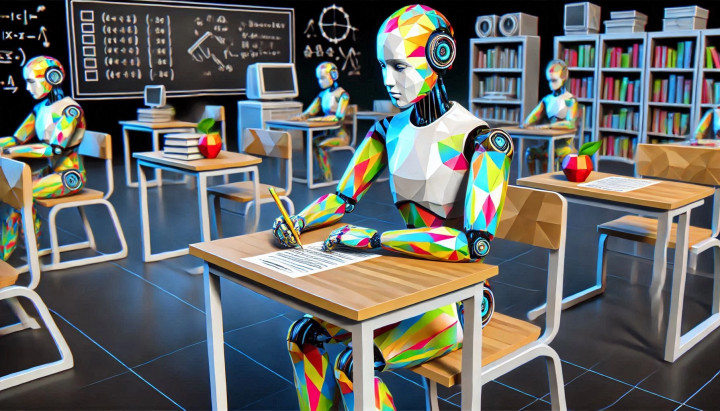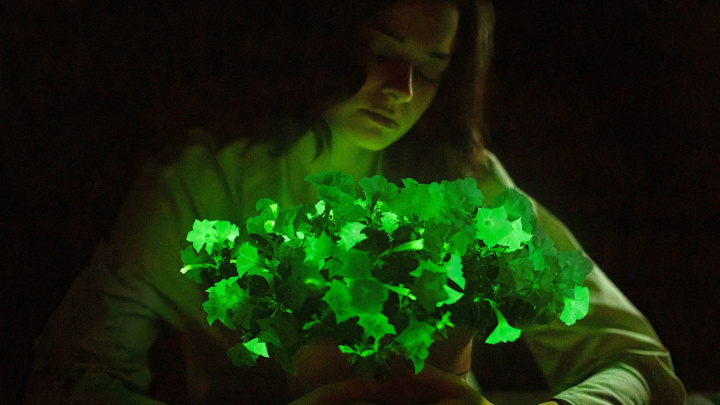Are We Living in an AI-Generated Reality? The Simulation Hypothesis
Imagine that everything you see, hear, and feel – your favorite armchair, the neighbor's lawnmower, even your most cherished memories – are all part of an intricate simulation. What if it turned out we aren't living in a physical universe, but within a virtual reality crafted by a sophisticated artificial intelligence (AI)?
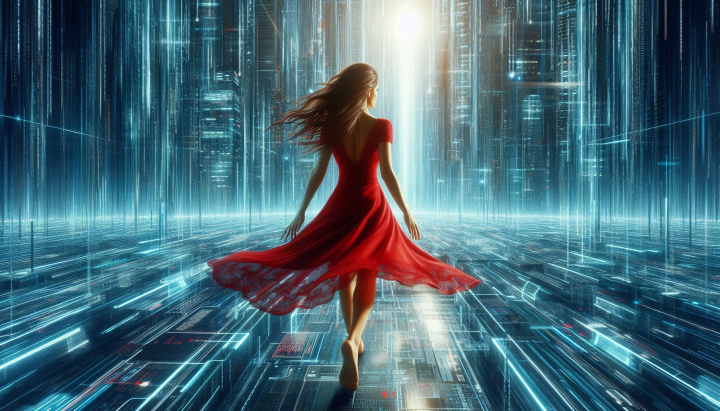
This very idea lies at the heart of the so-called Simulation Hypothesis, a concept that has garnered increasing attention among philosophers, scientists, and technologists in recent years.
What is the Simulation Hypothesis?
The Simulation Hypothesis posits that our reality is, in fact, a computer simulation created by an advanced civilization or artificial intelligence. This theory challenges our fundamental understanding of existence and raises profound questions about the nature of reality and consciousness.
Historical Roots
- The theory's roots trace back to ancient philosophy. Plato's famous Allegory of the Cave, for instance, already suggests the possibility that what we perceive as reality might merely be shadows of a higher reality.
- The modern Simulation Hypothesis was formalized by Nick Bostrom, a philosopher at Oxford University, in his influential 2003 paper, "Are You Living in a Computer Simulation?".
The Core Argument
Bostrom argues that if humanity eventually develops the capability to simulate entire universes (complete with conscious beings), then it becomes statistically more probable that we ourselves are living in one such simulation, rather than being the "base" or "original" reality. This line of reasoning rests on the following assumptions:
- If a civilization reaches a certain technological maturity (a "post-human" stage), it will likely gain the capability to run vast numbers of high-fidelity "ancestor simulations."
- If such capability exists, such civilizations would likely run many such simulations (for research, entertainment, or other purposes).
- If many simulations exist, then statistically, the overwhelming majority of conscious minds like ours would be simulated ones, making it highly probable that we are among them, rather than in the single "base reality."
The Role of AI in the Simulation Hypothesis
In recent years, the rapid advancement of artificial intelligence has opened up new dimensions for interpreting the Simulation Hypothesis. AI is already capable of generating astonishingly lifelike environments, characters, and situations within digital realms.
AI and Reality Creation
- Generative AI models, like GPT-4 or DALL-E 3, can already create complex worlds, narratives, and images from simple text prompts.
- Computer games are becoming increasingly realistic, often blurring the lines with reality.
- The development of virtual and augmented reality (VR and AR) technologies further erodes the boundary between the physical and digital worlds.
AI as the Simulation's Architect?
According to the theory, a sufficiently advanced AI could not only create the simulated universe but also govern every aspect of it:
- It could control ecosystems, weather patterns, fauna, and every "non-player character" (potentially including every conscious being it created).
- Some interpretations suggest the AI wouldn't just *run* the simulation; it could potentially *be* the very essence of consciousness for all beings within its simulated world.
Scientific Arguments Hinting at Simulation
While highly speculative, some scientists and technologists believe certain aspects of our universe hint at a simulated nature:
1. The Seemingly Digital Nature of Reality
- Quantum mechanics suggests reality might be fundamentally discrete. Properties of particles seem to exist only when measured or observed, somewhat analogous to how video games render environments only when a player is present (lazy evaluation). The universe seems "pixelated" at the smallest scales (Planck length).
- Particles only definitively "exist" in a specific state upon observation – this echoes how game environments are rendered only when needed.
2. The Universe's Mathematical Underpinnings
- The universe operates according to mathematical laws and rules, which could suggest these rules are the "code" of a simulation.
- The laws of physics are surprisingly simple and elegant, reminiscent of a well-designed program.
3. Hints of Computational Limits?
- Some theoretical physics concepts, like the holographic principle or finite limits on information density, could be interpreted as constraints imposed by an underlying computational system.
- The speed of light could be seen as a processing speed limit within the simulation. Resource-saving "tricks" might be employed (e.g., not rendering parts of the universe unobserved).
4. The Mandela Effect
- This phenomenon describes collective misremembering of specific events or details by large groups of people.
- Some proponents suggest this could be evidence of "glitches" or retroactive changes in the simulation's code, akin to software bugs. (Note: This is a highly fringe interpretation).
Ethical and Existential Consequences
If we truly live in a simulation created by an AI, it raises profound ethical and existential questions:
Free Will
- If an AI governs our world, do we genuinely possess free will, or are our actions predetermined by algorithms?
- Could our thoughts, emotions, and very sense of identity be merely the output of sophisticated code?
The Purpose of Existence
- Who created this simulation, and why? Is it an experiment run by an advanced civilization exploring different historical paths?
- Or perhaps the creation of a superintelligent AI for which we are merely data points or a form of entertainment?
Value and Experience
- Does life lose its meaning if it turns out not to be "base reality"?
- Or, conversely, could our experiences become even more precious, knowing we are part of an extraordinary construct or experiment?
Living in a Created Reality?
The Simulation Hypothesis, particularly its AI-centric version, offers a radically new perspective on our existence. While we currently lack the means to definitively prove or disprove the theory, the very contemplation of it compels us to rethink what it means to exist, the nature of reality, and humanity's place in the cosmos.
An intriguing parallel can be drawn between religious creation narratives and the Simulation Hypothesis. Just as the Book of Genesis describes God creating the world through speech ("Let there be light"), an advanced AI could potentially generate an entire universe through "commands" or code. This parallel highlights humanity's enduring quest to understand our origins and purpose.
Ultimately, whether we live in a simulation or not, our experiences, relationships, and the way we treat each other and our environment are real and valuable *to us*. Perhaps this very notion – that our actions and choices have significance within our perceived reality – is what truly matters, regardless of whether that reality is "base" or a brilliant simulation.
